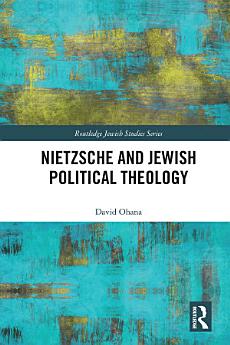Nietzsche and Jewish Political Theology
About this ebook
The present study offers a new interpretation of a particular theological position which is called "heretical religiosity." Only with modernity and, paradoxically, with rapid secularization, did one find "heretical religiosity" at full strength. Nietzsche enabled intellectual Jews to transform the foundation of their political existence.
It provides a new perspective on the adaptation of Nietzsche’s philosophy in the age of Jewish national politics, and at the same time is a case study in the intellectual history of the modern Jewry. This new reading on Nietzsche’s work is a valuable resource for students and researchers interested in philosophy, Jewish history and political theology.
About the author
David Ohana is a full professor of History at the Ben-Gurion University of the Negev, Israel. He is a senior fellow at the Jerusalem Van Leer Institute, where he founded and directed the Forum for Mediterranean Cultures. His affiliations have included the Sorbonne, Harvard, Berkeley, and the École des Hautes Études en Sciences Sociales, Paris.








